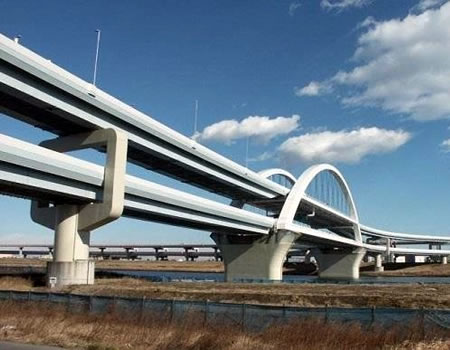This advice, according to some experts who commented over the announcement made last week that Governor Akinwunmi Ambode is revisiting the project and that contractors would be announced in two months time, argued that the proposal should be thoroughly considered, as the Mile2-Badagry highway is yet to completed.
Speaking on the subject, former President, Nigerian Institute of Structural Engineers (NIStrueeSE), Mr Kunle Adebajo, while supporting the revisit of the project, said all what government needs to properly look into is how the project will impact positively on Nigerians,especially, Lagos residents.
According to him, it is wrong to criticise the government for embarking on the 4th Mainland Bridge project, though that the Lagos-Badagry highway is yet to be concluded.
“The obvious reason is that while government is directly funding the Lagos-Badagry highway, at least, to a certain extent, the 4th mainland bridge project is purely a private public participation (PPP) arrangement with little or no financial commitment from the state government.
ALSO READ: Controversies trail Melaye’s whereabouts
“The only thing is that government must look at the technical, financial and other related expertise needed to ensure the smooth take off and the eventual completion of the project.
“Besides, government must look at the way the consortium will work together so that the project will not become another abandoned endeavour, and thereby constitute a financial burden to the citizens, knowing fully that investors will look at how they will recoup their investment at a possible short period,” said Adebajo.
However, another commentator, who expressed pessimism over the timing of when the consortium would be announced opined that the decision “smacks of anticipated political gain that may accompany the pronouncement, rather than a thoughtful consideration that may assures the success of the project,” said Dr Adeyemi Adedara, of Milestone Engineering firm, located in Ikoyi.
He was of the view that concession has been a non-workable arrangement in Nigeria, owing to what he described as “government’s inconsistent policies and influence of powerful vested interests at the corridors of power.”
“In essence, except there is evidence to the contrary, I think it’s because election period is around the corner, and this project, to me, is like a selling article to woo the residents for vote. However, if government is for real, I will favour a well thought-out pragmatic approach that in the event that the present administration can’t complete the project, whoever comes after will have no choice than continue with it and complete it.”





